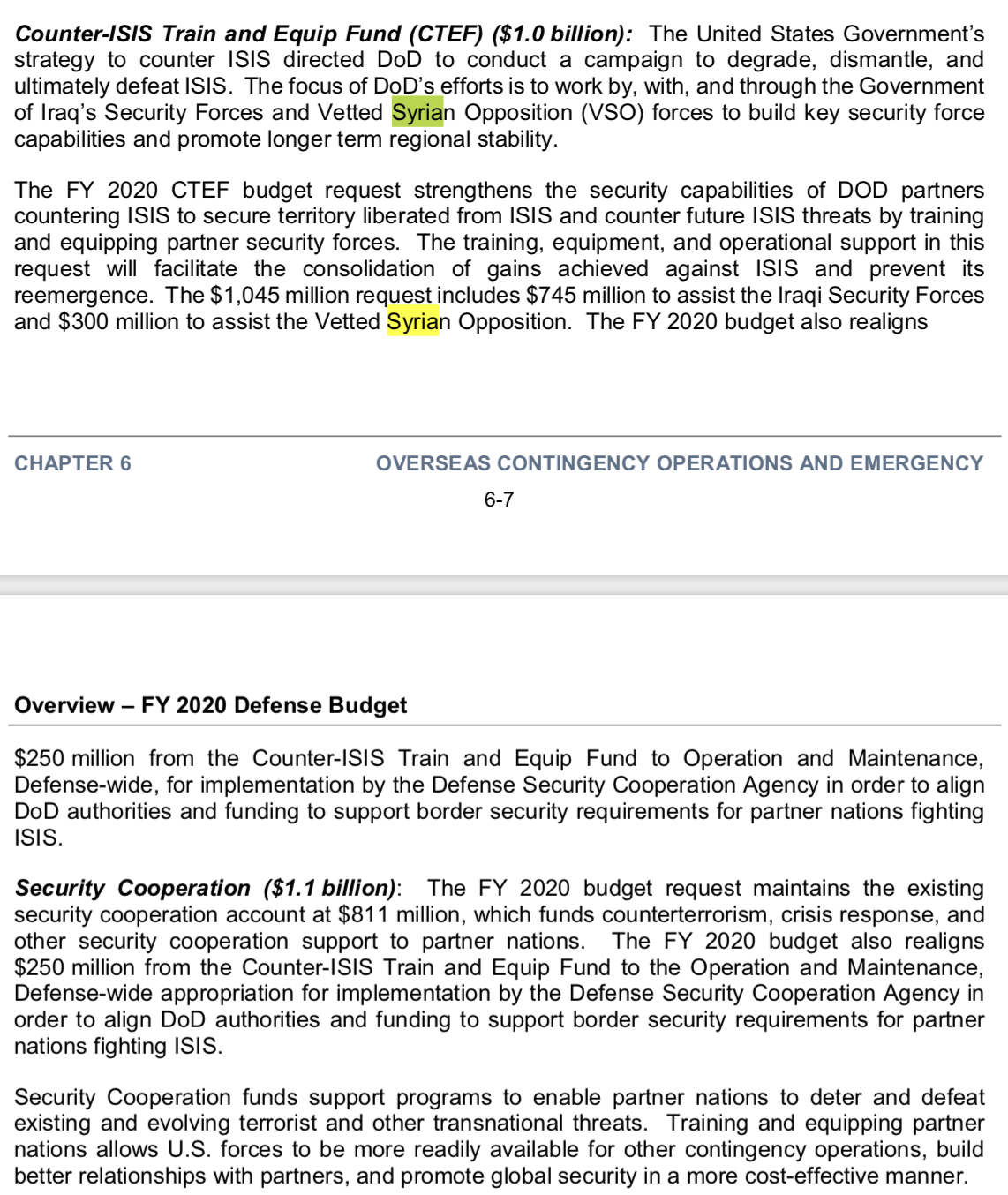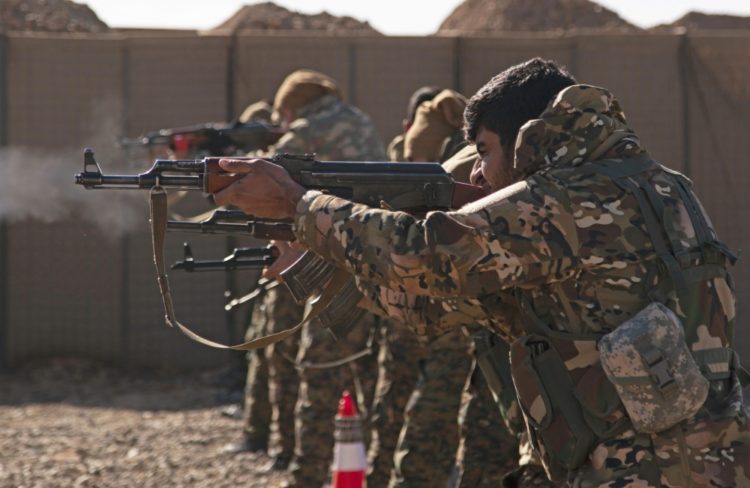“The Kurds have no friend but the mountains,” as the old saying goes. Yet there are few mountains in Northern Syria, where the Kurdish People’s Protection Units (YPG) and Women’s Protection Units (YPJ) formed a coalition with Arab militias called the Syrian Democratic Forces to fight the Islamic State in Iraq and Syria (ISIS).
The U.S. government resisted involvement in another protracted war in the Middle East, but relented as ISIS spread across the region. U.S. military airstrikes helped prevent Erbil from being overrun in Kurdistan, and then helped the YPG and YPJ secure a decisive victory in Kobani.
While America stumbled in Syria numerous times, a reliable ally was found in the Kurdish enclave in Northern Syria, a region the Kurds call Rojava. With ISIS launching external attacks in Europe and the United States—as well as attempting to establish affiliates elsewhere in the Middle East, Asia, Africa, and Afghanistan—the destruction of the Islamic State and their de facto capital, Raqqa, become a priority. As time went on, U.S. Special Operations soldiers were deployed to Rojava in increasingly numbers along with conventional forces.
Wedged between the Syrian regime, ISIS, and rather hostile governments like those of Turkey and the Kurdish regional administration led by Kurdistan Democratic Party, the United States became a security guarantor to Rojava. If Turkey or the Syrian regime invaded, they would almost certainly come into conflict with American troops and suffer at the hands of American airstrikes—as one Russian paramilitary group found out the hard way. Fears persisted among the Kurds that America’s relationship with them is simply one based on national interest rather than friendship.
This is the nature of virtually any international relationship, but the Kurds took it personally, fearing the relationship is wholly situation-based, and centered on America’s political objective of crushing Raqqa. These concerns weren’t unfounded, as the U.S. government has a habit of using the Kurds to further its agenda—the Gulf War, the 2003 invasion of Iraq, now—then discarding them afterwards.
Currently, issues were further exacerbated by President Trump’s order to the Pentagon for removal of all military personnel from Syria; then switching course and changing his mind (several times, it seemed) before he moved on and made overtures of withdrawing troops elsewhere, such as Afghanistan and South Korea.
Salih Muslim, founder of the Democratic Union Party (PYD) in Rojava and its current head of international relations, recently spoke to this dynamic in an interview with OZY:
That’s right, but they [the U.S.] said they wouldn’t leave until three conditions were met: the defeat of ISIS, the expulsion of Iranians from the country, and stability in Syria. So far, none of the three has been fulfilled, so their decision looks premature to us. We never asked for protection. Actually, we had been fighting and defending ourselves before Trump [came] to power. During the siege of Kobani, they were helping us with air strikes, but there were no Americans troops on the ground. Withdrawal is not that important because we can defend ourselves. Air defense is all we need.”
However, when examining the proposed budget of the U.S. Department of Defense for the fiscal year of 2020, it reveals a picture quite different than expected of America’s future commitment to the Kurdish forces in Northern Syria. There’s $1billion for a Counter-ISIS Train and Equip Fund (CTEF), with $745 million allocated towards Iraqi security forces, and $300 million “to assist the Vetted Syrian Opposition.”
In the past, the U.S. flirted with various Free Syrian Army militias, but at this stage in the conflict, the only viable partner that the U.S. military works with is the Syrian Democratic Forces (SDF). The $300 million would likely be spent on further training by U.S. Special Forces and equipping the SDF with weapons and tactical gear.

Already have an account? Sign In
Two ways to continue to read this article.
Subscribe
$1.99
every 4 weeks
- Unlimited access to all articles
- Support independent journalism
- Ad-free reading experience
Subscribe Now
Recurring Monthly. Cancel Anytime.

NEWSREP’s Kurdish sources reflect a view similar to PYD’s Muslim: they greatly appreciate the help of American airstrikes and American weapons, but they don’t really need training from U.S. Special Forces, as they have their own training courses and programs. Despite this, our military teams can certainly offer quality training if both parties are open to the relationship.
However, what’s immediately apparent is with $300 million devoted solely to helping the SDF through a train and equip fund, is that the U.S. is going nowhere fast with regard to Syria.
This is no doubt a relief to the Kurds, and yet one has to wonder if Muslim, YPJ–SDF commander Rojda Felat, and others who have spoken about America’s national interests, find it ironic that the U.S. is staying in Rojava because it hopes to use the Kurds to balance against yet another one of its gains. With ISIS nearly defeated, U.S. National Security Advisor John Bolton laid out a new condition for American withdrawal from Syria.
“We’re not going to leave as long as Iranian troops are outside Iranian borders, and that includes Iranian proxies and militias,” Bolton told multiple news sources in the fall of 2018, laying out impossible-to-disprove conditions for an American withdrawal from Syria.











COMMENTS